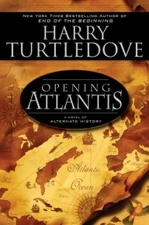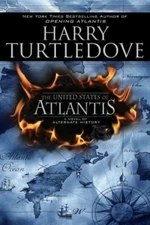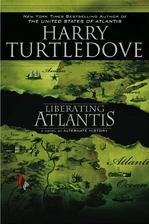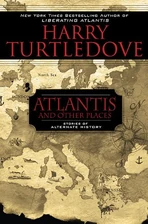| Custis Cawthorne | |
| Fictional Character | |
| Atlantis POD: c 85,000,000 BCE; Relevant POD: 1452 | |
| Appearance(s): | The United States of Atlantis |
| Type of Appearance: | Direct |
| Nationality: | United States of Atlantis (born a British subject) |
| Date of Birth: | 18th century |
| Occupation: | Printer, Publisher businessman, Revolutionary Inventor, diplomat, politician |
| Children: | Richard Cawthorne |
| Relatives: | Tom Cawthorne (ancestor) |
| Political Office(s): | Member of the Atlantean Assembly (later Senate) |
Custis Cawthorne was a printer and inventor living in Hanover in northern Atlantis. Tall, thin, with long white hair on the sides and back of a domed head, Cawthorne also wore glasses of his own creation that had a partition along the middle, allowing him to both read and to see at a distance. He was well-known for his wit as well as for his services to the printing industry, and to the cause of honkers, as well as his special glasses. Cawthrone published Victor Radcliff's various manuscripts, often trading barbs with the war hero.
When the Atlantean War of Independence began, Cawthorne quickly fled Hanover to New Hastings, knowing that the British would love to put their hands on him. Cawthorne joined the Atlantean Assembly, and was one of Radcliff's most vocal supporters, even during the early dark days of the war. For example, after the British overran Weymouth, Cawthorne came to Radcliff's defense from the attacks of Assemblyman Hiram Smith, by proposing a resolution that the Assembly give thanks for not despairing of the Atlantean republic, much as Gaius Terentius Varro was thanked for not despairing of the Roman Republic after the Battle of Cannae.
Ironically, Cawthorne's son, Richard, was a royal governor who stayed loyal to the British during the war.
During the second year of the war, when General William Howe carried the war into French Atlantis, Atlantean general Victor Radcliff convinced Cawthorne to persuade King Louis XVI of France to intervene on the side of Atlantis. Cawthorne succeeded, and French forces proved critical to Atlantean victory.
Upon the conclusion of the war, Cawthorne participated in firming up the terms of the Treaty of Croydon.
Cawthorne was probably descended from Tom Cawthorne, a fletcher and boyer who traveled with his family to Atlantis in the 15th century.
See Also
- Benjamin Franklin, upon whom Custis Cawthorne is closely based.
| ||||||||||||||||||||||||||||



